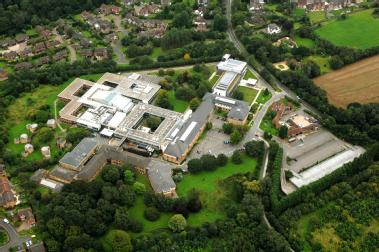University of Warwick secures over £1.3m to research food security
University of Warwick secures over £1.3m to research food security
 Researchers from the University of Warwick’s School of Life Sciences (SLS) have been awarded over £1.36m in grants to further their work into food security.
Researchers from the University of Warwick’s School of Life Sciences (SLS) have been awarded over £1.36m in grants to further their work into food security.
The BBSRC Horticulture and Potato Initiative (HAPI) grants include substantial cash and in-kind contributions from industrial partners and will be used to support work into how to improve pest and disease control and post-harvest quality.
Commenting on the grants Professor Laura Green, Head of SLS, said:
“The BBSRC HAPI grants reflect the leading role that the University of Warwick’s School Life Sciences plays in improving food production globally. Research findings from the Warwick HAPI-funded projects will result in substantial impacts on the horticulture industry generating solutions for breeders, growers and processors.”
-
Dr Katherine Denby has secured £530k (including £55k from industry) to combine systems biology and quantitative genetics to identify alleles improving disease resistance against necrotrophic fungal pathogens that cause significant damage to lettuce and other crop species. Dr John Clarkson will provide expertise on Sclerotinia disease, one of thenecrotrophic pathogens being examined.Supported by industry partners Hazera Seeds and AHDB Dr Clarkson was, in 2013, awarded a HAPI grant to research the exploiting of next generation sequencing technologies to understand pathogenicity andresistance in Fusarium oxysporum on onion.
The industrial partners are A. L. Tozer, the Horticultural Development Company and Freshtime Ltd.
-
Dr John Walsh, along with Dr Guy Barker, has secured £732k (including £109,425 from industry) as well as in-kind support. The project involves a collaboration with colleagues at Rothamsted Research and Allium and Brassica Agronomy and will investigate the development of integrated approaches including genomic aspects for pest and disease control in horticultural field crops. Dr Walsh will focus on an important virus infecting field vegetable crops and oilseed rape across Europe and one of the world's most important virus vectors, the peach potato aphid Myzus persicae.
The project involves seven commercial partners, Syngenta UK Ltd., Dow AgroSciences Ltd., Tozer Seeds Ltd., Sakata UK Ltd., Rijk Zwaan UK Ltd., Enza Zaden UK Ltd. and the Horticultural Development Company.
-
Dr Guy Barker will also be involved in a HAPI-funded project led by Prof Dave Pink at Harper Adams University, which will use genetic approaches to improve post-harvest quality of lettuce.
The newly announced HAPI funding awards follow on from other recent SLS successes with BBSRC strategic initiatives funded through their Crop Improvement Research Club (CIRC), Crop Genomics and Technologies (CGAT) and Animal Health Research Club (ARC) schemes, demonstrating that researchers in SLS are undertaking cutting-edge science that addresses important global challenges.
Professor Timothy Jones, Pro Vice-Chancellor: Research (Science and Medicine), Knowledge Transfer and Business Engagement at the University of Warwick, said:
“The grants awarded today by the BBSRC and business are a further demonstration of both the University of Warwick’s world-leading research and our successful engagement with stakeholders. The grants will support Warwick researchers to break new ground on vital issues concerning the development of a sustainable food system – one of the University’s Global Research Priorities (GRP).
“The University of Warwick’s vision for the GRP is to enable the best intellectual creativity and teaching capacity to address this highly complex, fundamental contemporary issue, so that people should eat regularly, sustainably, fairly and well, served by a food system which draws on the best science and social science to meet continual challenges”.
Food Security is a strategic priority for the University of Warwick, BBSRC, and the HAPI scheme aims to support excellent quality industrially relevant research and to help foster productive networks and knowledge exchange between academia and industry.
In-depth discussion with the horticulture and potato industries previously identified a number of research challenges that are of importance to companies across this sector, and fall within the broad areas of achieving a sustainable increase in the productivity of crop production systems in order to meet the rising demand for food from a growing global population, and adapting crop production practices to changes in our climate.
PR 114 2/6/15
Contact:
Tom Frew, International Press Officer
Tel: +44 (0)247 657 5910
Mob: +44 (0)7785 433 155
Email: a dot t dot frew at warwick dot ac dot uk
